Redmap sightings are verified by a network of marine scientists around the country. Here are the scientists who convert your community observations into citizen science data.


Redmap sightings are verified by a network of marine scientists around the country. Here are the scientists who convert your community observations into citizen science data.
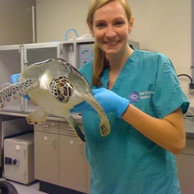
I am the regional administrator for Redmap in Queensland. I am a research officer in the Estuary and Tidal Wetland Ecosystems Research Group within the Centre for Tropical Water and Aquatic Ecosystem Research at James Cook University. I have had a love for the ocean and its inhabitants since I was very young. During my undergraduate degree at Virginia Tech, I assisted in research projects ranging from reptile and amphibian studies to aquatic toxicology and coral reef ecology. I completed my master’s research in 2012 on green sea turtle diet for the central Great Barrier Reef region. Currently I am working on coastal ecosystem and wetland habitat studies, which I will continue to explore in the future.
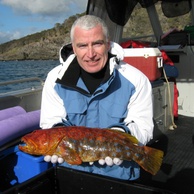
During my childhood years I developed an interest in the marine environment through my regular family holidays to Coffin Bay on the west coast of South Australia. Since that time I have gone on to become a qualified marine biologist conducting research on a wide variety of marine species and habitats, including a PhD on blue swimmer crab larval biology, a study on rock lobster aquaculture, and various projects on reef fish biology and behaviour. I now have over 20 years of professional work experience, including 10 years in various South Australian Government Agencies and 10 years in two South Australian Universities. Currently I work as an independent marine biologist providing consultancy services to government, industry and community. I continue to dive and conduct research around South Australia’s coastal waters and also work with community divers on reef fish projects. Thus I am particularly interested in how community divers can contribute to Redmap and in turn enhance our knowledge of species distributions and patterns of change.
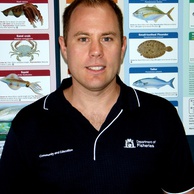
I have worked for the Department of Fisheries in WA for the last ten years leading community education and involvement initiatives, and even at times sharks. I am passionate about engaging with the community to better understand our marine environment and how to deal with future challenges. I am looking forward to working on Redmap to complement my support of other Departmental initiatives such as the Research Angler Program and our expanding teacher curriculum resources in Marine WATERs (Western Australian Teacher Education Resources). I am based in the south west of WA and have seen my fair share of fish ‘on the move’ so I am very enthusiastic to welcome and implement Redmap into WA.
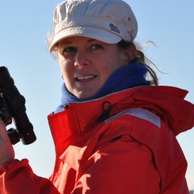
Growing up on the Mornington Peninsula, Victoria, I always had a love of the water. My interest grew even more when I started diving. I loved diving but I wanted to know more about the species that live in this environment, their interactions with other animals and the effects of environmental change. I followed this passion and started a Science degree at Monash University, majoring in marine and freshwater biology and zoology. During my degree my interest was fine tuned and began working with marine mammals, this is now not only my passion but my career. Another pivotal moment was a lecture I attended on conservation and population genetics of cryptic species. I was amazed at how much we could find out about animals from DNA, and so started my path in genetics of dolphins which was the focus of my PhD studies. I have now been working with cetaceans, in particular dolphins in southern Australia, for over 13 years. I have biopsy sampled over 130 dolphins, attended over 40 cetacean strandings and have conducted over 30 necropsies. My current research involves species status, distribution, migration pathways, habitat preference and potential ‘hot spots’ of Tursiops species across southern Australia. However, my general interest covers with all cetaceans! As a Research Associate with Museums Victoria, I have been active in the research and the collection of marine mammal specimens across coastal Victoria.
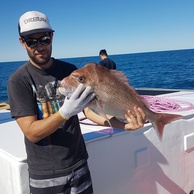
I have always been interested in fishing so the prospect of studying fish and working on the water was appealing. I did a lot of fishing, which exposed me to the various conflicts in natural resource management, interaction between levels of government and natural rights. Initially just wanted the fun things seen in films and television shows that are associated with being a marine biologist. This attitude has changed and developed throughout my career and I now see helping the fishers of WA as my main priority. My area of work focuses on the research and monitoring of key recreational and commercial demersal finfish species, such as West Australian dhufish and Snapper. This includes overseeing the day to day operations of the ‘Send Us Your Skeletons’, a long-term monitoring program of fish stocks to ensure the recovery of key fish species by collecting biological information from fish skeletons donated by recreational fishers. As part of my PhD at Edith Cowan University I work with DPIRD’s surveys team to produce estimations of harvest of recreational fisheries that capture the environmental and biological differences along our coastline and evaluate the variability in released catches and released rates, and the impact of released catches on estimating total harvest. I enjoy seeing how research outcomes contribute positively to the fishing experience in WA, while working in charming locations with interesting people. The support and goodwill I receive from colleagues, administrators and the fishers of WA is humbling and very beneficial to the research. I also enjoy developing and using new methods and technologies in collaboration with other researchers across the country. It is vital we have an understanding of the harvest and what effect that harvest is having. We use information on biology, current and historical catches to understand the resource, how it responds and how best to manage it.
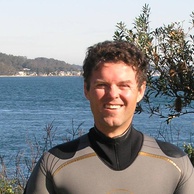
Tom Davis currently works for NSW DPI in Coffs Harbour examining impacts of Climate Change on Marine Ecosystems. Tom started diving in 2001 and contributes to citizen science monitoring projects including; Reef Life Surveys since 2008, Redmap since 2013 and Sea Slug Censuses since 2012. Tom has a PhD focused on conservation of marine biodiversity.
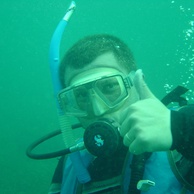
As a child I was a fanatical fisherman. Where ever we travelled on family holidays, I had usually landed a fish from the local river, beach or lake before my parents had thought about putting up the tent (helping out would have been a waste of good fishing time!). After finishing Year 12, I rejected an offer to do Science at Melbourne University and travelled to the sleepy hollow of Beauty Point in northern Tasmania to undertake a Bachelor of Applied Science in Fisheries at the Australian Maritime College.
In my 20 years since completion, I have worked for 1 year as a commercial fisherman, 11 years as an abalone researcher, and for the last 8 years I have managed the research program for prawn and blue crab fisheries in South Australia, at SARDI Aquatic Sciences. With over 1000 hours as a research diver and countless hours at sea on recreational, commercial and research vessels, I have shared many experiences with like minded lovers of the sea. Redmap provides a fantastic opportunity to take that engagement and knowledge sharing to a whole new level.
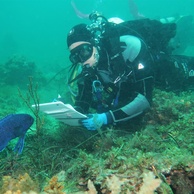
I am a marine scientist working in South Australia. I use Baited Remote Underwater Video Systems and Underwater Visual Census to monitor the fish and invertebrate communities of our beautiful temperate subtidal rocky reefs. I love diving and being on the water and exploring marine environments. I am a tragic fish nerd and am especially interested in ecology, adaption and evolution and I also have a soft spot for sea stars and birdwatching. I am particularly interested in how we monitor species which are relocating or moving their home ranges and I think Redmap is a great project for this.
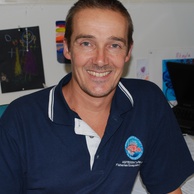
My background is as a surfer, snorkeller and diver and professionally as a fish biologist, having worked on temperate and tropical fishes and conducted studies of fish communities, ecology, movement, reproductive biology, age and growth, diet and fisheries stock assessments.
My current focus is to provide the data necessary for stock assessments of demersal fishes along the west coast of Australia. These data are essential for making science-based decisions about the management of a socially-important resource. To improve our ability to conduct assessments and involve recreational fishers in the scientific process, we developed the citizen science project Send Us Your Skeletons (www.fish.wa.gov.au/frames), which has been very successful. Redmap is another great way to increase the communication and knowledge flow between scientists and the public.
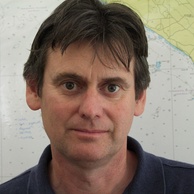
I became interested in freshwater and marine fishes through camping and diving in Tasmania. I studied marine biology/zoology at James Cook University in Far North Queensland then completed a PhD at the University of Adelaide. I have been employed by the South Australian Research and Development Institute in South Australia since 1993 and have worked on a variety of projects related to commercial and recreational fisheries with an interest in estuarine fisheries, in particular long-lived, large bodied native fish species associated with the Lower Murray River. Redmap provides an opportunity for community knowledge to contribute to our understanding of changes in fish populations over long time periods and large spatial scales.
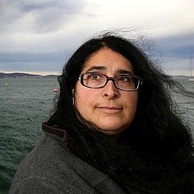
Lisa-Ann Gershwin is a biologist based in Tasmania, who has described over 200 species of jellyfish, and developed a system to predict blooms of the hazardous Irukandji jellyfish in north Queensland. She led a team that discovered that the blooms coincide with the blooming of salps, and that these were prompted by upwelling after the dying down of trade winds. She has described several poisonous jellyfish. In 2013, Gershwin published a book describing the diversity and adaptability of jellyfish, and their increasing numbers at the expense of other organisms worldwide, through overfishing, pollution and modification of the marine environment. She concedes there is little that can be done to reverse or even halt the process of the marine environment becoming dominated by jellyfish worldwide.
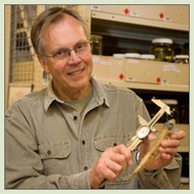
Dr Martin Gomon is regarded as Victoria’s authority on the identification and distribution of fishes. His research interests focus on the diversity and evolution of fishes in southern Australia and throughout the world. He was born and educated in the USA, arriving in Australia in 1979 to take up the newly created position of Curator of Fishes at the then National Museum of Victoria. He immediately set about reorganising the museum’s historically significant fish collection and building it to where it today ranks as the third largest in Australia.
He has actively collaborated with colleagues throughout Australia and internationally on a wide variety of studies, from taxonomic revisions to environmental modelling, using fish distributions to act as surrogates for habitats. Although scientific in the main, his publications also range into the realms of semi-popular and utilitarian.
Dr Gomon has promoted the efforts of the ichthyological scientific community in Australia at a time of dwindling numbers and declining resources, with members continuing to punch above their weight. The OzFishNet consortium, comprising Australia’s fish taxonomists, for which Dr Gomon was an organising and founding member, continues to attract funding for projects like its soon to be launched Fishes of Australian Online website.
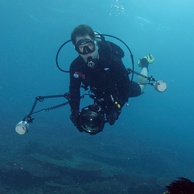
I am a marine scientist in Australia working on threatened marine species (sharks, seahorses and fish) for the past 12 years. I currently work as Research Scientist for the Port Stephens-Great Lake Marine Park and in my spare time finishing a PhD on the biology, ecology and conservation of the White's Seahorse (Hippocampus whitei). I have been diving for 15 years and in that time I developed a passion for marine life and underwater photography. In particular I focus on photography of unusual and rare marine species which has resulted in hundreds of images used in various fish and nudibranch identification guides. I have developed the Marine Species Database (www.speciesspotlight.com) and a website (www.daveharasti.com) to assist divers in identifying the marine species they may encounter on their dives.
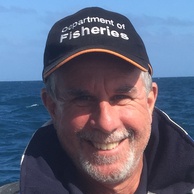
Dr Gary Jackson is a fisheries scientist with the Department of Primary Industries & Regional Development based at the WA Fisheries & Marine Research Laboratories. Gary has 30+ years’ research experience working in a range of freshwater, estuarine and marine environments. He is currently a Principal Research Scientist in the Offshore group that is responsible for monitoring and assessment of a wide range of WA’s fishery resources including: tropical and temperate demersal scalefish, sharks & rays, small (sardines) and large pelagics (Spanish mackerel) and invertebrate trawl fisheries (prawns, scallops, crabs). Current research areas of interest include: otolith-based fish ageing methods, effects of long-term fishing and climate change on demersal fish stocks, stock structure/connectivity, assessment and management of recreational fishing and shark depredation. He is a Redmap Steering Committee representative for Redmap Western Australia.
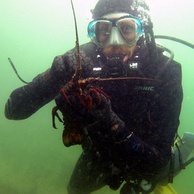
I am relatively new to the world of marine research. I have completed a Bachelor of Science degree double majoring in Marine Science and Sustainable Resource Management through the University of Newcastle. My honours project is looking at Filicampus tigrus (Tiger Pipefish) around the Port Stephens area. I am a passionate, environment-loving vegan and this has undoubtedly shaped the choices I’ve made in my scientific life and pathways. This is especially so in the way I approach the studies and projects I involve myself in. The Redmap project encompasses many of my interests, such as scuba diving, alternative information gathering methodologies, species identification and educating the community in aspects of marine science. I am extremely grateful to have been given the opportunity to be a contributor to this website and I believe that initiatives like this are vital to engaging people in the science of climate change.
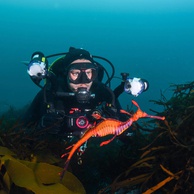
Tyson Jones is the Redmap Australia sightings manager and a PhD candidate at the Institute for Marine and Antarctic Studies (IMAS). His research explores nocturnal reef ecology across both temperate and tropical reefs, and studies the impacts of diver disturbance on fish behaviour. With a primary interest in reef associated fishes and invertebrates, Tyson has accumulated over 500 scientific dives assessing reef biodiversity across all major reef networks surrounding Australia. Beyond studying reefs, Tyson has extensive experience studying estuarine ecosystems, conducting complimentary habitat and fish assemblage surveys to prioritise restoration efforts for threatened estuarine habitats.
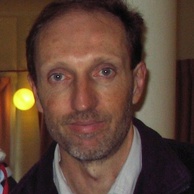
Alan Jordan is a marine ecologist with NSW Department of Primary Industries that leads a research group examining the spatial and temporal patterns of biodiversity throughout NSW marine waters. His particular focus is on seabed habitat mapping and benthic biodiversity assessment using acoustics, and towed and autonomous video systems. These have been applied to a large range projects concerning environmental and marine resource assessment in NSW. At present he is involved in a project specifically assessing the structure and biomass of fish assemblages on coastal reefs along the NSW coast using baited video systems.
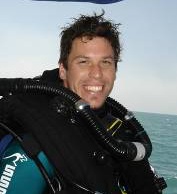
My research experience spans a broad range of marine ecological investigations with a strong focus on in situ sub-tidal surveys and experimental work which has spanned > 1500 research dives over the past 14 years. Much of my work has centered on investigating the effects of human stressors on marine ecosystems such as fishing, climate change and the introduction of invasive species. Central to my interests is the identification of alternative ecosystem states and processes influencing phase shift to less desirable states, particularly those proving surprisingly difficult to reverse.
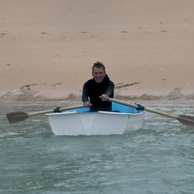
I’m a research scientist with the NSW Government, mainly working on marine biodiversity and marine parks. I’ve been based in the Solitary Islands Marine Park for the past decade, which is a very interesting place to work as there is an incredible mix of tropical, subtropical and temperature species due to the influence of the East Australian Current. I love the latitudinal gradient we have in Australia, and have also worked as a marine scientist in Townsville and Tasmania. I’m interested in all things to do with the sea, but particularly fishes and sharks and their ecology and conservation. I am very interested in changes to biodiversity associated with oceanographic and climatic changes.
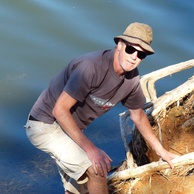
Beginning employment at the Australian Museum in 1981, Mark began permanent work in the Ichthyology Section in 1982. Initially working as a technical officer, Mark became the Collection Manager in 1987, a role he has held since that time. During his career, he organised and/or participant in over 30 collecting trips and expeditions within Australia and throughout the Pacific region. Mark's research work focused on the taxonomy of the Ghost Flatheads, Family Hoplichthyidae. He participated in numerous workshops, given many seminars and media presentations and has published written articles for both popular and scientific publications; more recently considerable effort has been directed to web-based publications.
Since October 2016, Mark has put considerable effort into Australasian Fishes (https://www.inaturalist.org/projects/australasian-fishes) , an iNaturalist project that allows any member to upload, identify and comment on observations of fishes from Australia and New Zealand The project has made many discoveries and is helping to document the fish fauna of the region. Mark retired in August 2018, but continue on at the Australian Museum as a Senior Fellow.
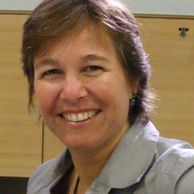
I am the Director of Fisheries Research with NSW DPI. I decided that I was going to be a marine biologist the day I put a mask and snorkel on and put my head underwater. I am lucky enough to have worked in a diversity of Australia’s marine environments from the tropics to Antarctica. Not only am I curious about where marine animals live and what they do, I love learning about the processes that are responsible for what I see underwater. I carry out research on a range of species, but usually the molluscs (mussels, oysters, abalone), and I have a passion for the cephalopods (squid, octopus and cuttlefish).
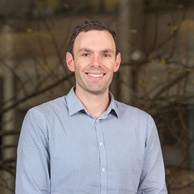
John is a Senior Lecturer in Marine and Freshwater Biology at the University of Melbourne, where he leads the Quantitative Aquatic Ecology and Evolution research group. He is also the Vice President of the Australian Society for Fish Biology. John works across both marine and freshwater systems where he investigates how fish respond to environmental change on contemporary and evolutionary time scales. His current research is focussed on understanding how commercial and recreational fishery activity, oceanic warming, and extreme events like marine heatwaves combine to impact on fishes and fishery productivity. John asks questions at different levels of biological organisation, ranging from individuals to assemblages, using field-based and experimental techniques. John’s passion for fish ecology and evolution is matched in his university teaching and community engagement activities. John is the regional Redmap Steering Committee representative for Redmap Victoria. John.morrongiello@unimelb.edu.au
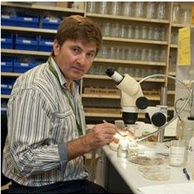
Dr Timothy O'Hara uses museum collections to answer large-scale questions about the distribution of seafloor animals around the globe. This research includes aspects of biogeography, macroecology, phylogeny, and phylogeography. His taxonomic speciality is the Ophiurodea (brittle-stars), a class of echinoderms that are a dominant component of the seafloor fauna.
http://museumvictoria.com.au/collections-research/sciences/marine-sciences/people/timothy-ohara/
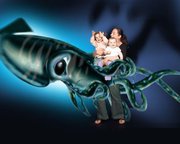
I'm a marine ecologist working at the Institute for Marine and Antarctic Studies (IMAS). I’ve always been very intrigued by ecology in general and fascinated with all things marine – an unusual passion for someone from a family of confirmed land-lovers! I’m really interested in finding out how our marine ecosystems might be changing, and in helping to establish what practical things we can do to make the best of climate change impacts. My current research activity spans a range of topics including risk assessments for fisheries, assessing population responses to climate change, developing approaches for adaptation research and establishing international collaborations with researchers in other ‘hotspots’ for climate change. Something very evident from our research over the last decade has been the extensive knowledge that is held within our fishing and diving communities – Redmap is about providing a facility to record and acknowledge that information and share it with the rest of Australia!
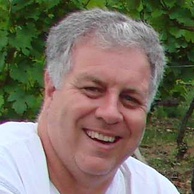
I am a Senior Lecturer at the Central Coast Campus of the University of Newcastle with a background in marine ecology and biology. I have a long held fascination for the ocean and its organisms and this lead me to diving almost 30 years ago. A significant part of this is a strong interest in sharks and rays in terms of understanding their life histories as well as their conservation and management needs. My research focusses mainly on coastal sharks and rays, with a particular emphasis on the Port Jackson shark.
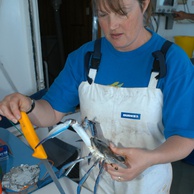
Since I was very young, I have had an affinity for the sea and the creatures that inhabit it, in particular sharks. I gave my first official public talk on sharks at the tender age of 10 and haven’t looked back since. For the last 25 years, I have spent my time playing, studying and working in the sea. I completed a PhD on the physiology of sharks at the University of Adelaide and have worked with the South Australian Government as a research scientist for the last 19 years on abalone, lobster, crabs, prawns and sharks. More recently I began working as an environmental assessment officer for aquaculture. Throughout it all, I have maintained my love of the sea and have logged many hundreds of hours diving both recreationally and commercially along the coast of South Australia. I also spend as much of my free time as possible recreationally fishing. I am pleased to be part of Redmap as it offers a unique opportunity for the public to share their experiences and contribute to the pool of knowledge for many of our species.
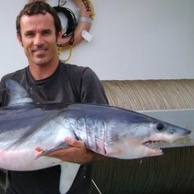
Paul Rogers, research scientist, has worked on a range of research projects over the past nine years including the population assessment of a range of pelagic fishes, seabirds and marine mammals. These projects have involved conducting research in offshore shelf waters of the Great Australian Bight (GAB). He also co-supervised a field program aimed at assessing benthic performance indicators for the GAB Marine Park’s Benthic Protection Zone. His main area of expertise is in the life history and ecology of pelagic finfish and sharks. He has extensive experience in the analysis of spatially-related fishery and ecological data.
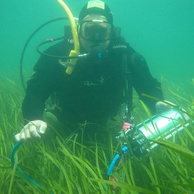
Growing up at one of the closest surfing, fishing and diving centres south of Adelaide meant it was inevitable that I would build some sort of affinity with the marine environment. As well as undertaking large doses of all the activities above I studied Marine Biology at university so my working life has become an extension of my childhood. I have sampled and dived along the majority of the South Australian coastline, firstly at the two major universities and then within Government for the last 20 years.
I spent many years working on projects as diverse as marine pests surveys and baseline assessments of aquaculture zones in South Australia, to marine biodiversity surveys and studying the environmental impact of dredging and aquaculture. In the last few years I have moved to the Fisheries Department and now manage commercial and recreational fisheries in South Australia. As well as the community driven information that Redmap gives on changes to species distributions I am very interested in the potential for engagement Redmap has with all sectors that utilise and/or explore marine resources in South Australia, including divers, anglers and commercial fishers.
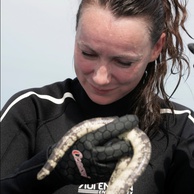
I’m a postdoctoral researcher based at the University of Adelaide’s School of Earth and Environmental Sciences. Most of my work focuses on the evolution and conservation of viviparous sea snakes – a highly diverse group of >60 species that collectively span the tropical and sub-tropical Indo-Pacific (http://www.adelaide.edu.au/directory/kate.sanders). South Australian waters are too cool for sea snakes to survive here for long. The occasional vagrant is most likely to be found washed ashore dead or weakened. Sea snakes are most easily distinguished from eels by their scaled skin and tall paddle-shaped tails. Almost all sea snakes are dangerously venomous and should be handled with caution.
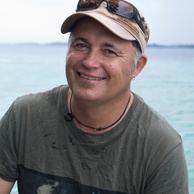
Steve is a marine benthic ecologist with primary interests in the amazing biodiversity that can be found in our marine and estuarine environments, especially the molluscs. Much of this diversity is under threat from a wide range of human impacts and Steve is dedicated to understanding these impacts with a view to fostering long-term sustainability. Because little is known about the distribution and dynamics of marine biodiversity in Australia, especially in subtidal environments, much of my research focuses on measuring and monitoring diversity and determining the main factors that cause it to change - this includes both natural and human-induced impacts.
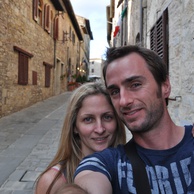
Research Fellow at IMAS and Redmap Australia coordinator
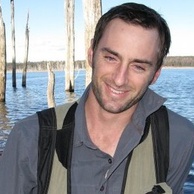
I am an ecologist studying broad-scale patterns in reef biodiversity. My primary interests are in understanding human impacts on reef communities and incorporation of high resolution biodiversity data into universal metrics of reef condition. I am also a co-founder of Reef Life Survey, an international marine science and conservation program, and have undertaken reef biodiversity surveys on rocky and coral reefs around the world and trained over 150 volunteer divers in Australia and Spain in reef biodiversity survey methods.
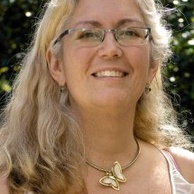
I have a long standing interest all aspects of Elasmobranch ecology and biology. I have worked on shark tagging programs and have investigated the embryological development of the egg laying catsharks Chiloscyllium punctatum and Hemiscyllium ocellatum.
Project Manta:
My most recent interest is in the population dynamics and habitat usage of mobulids such as the manta ray Manta birostris off of east Australia. Although manta rays are commonly seen and dived with at popular dive sites, there is relatively little is known about most aspects of the biology and ecology of manta rays (including population size, migration patterns, growth rates, size at maturity, reproductive biology, longevity and age at maturity) and there is no scientific data available on the Australian east coast population. A longer-term goal of the study is to use manta rays as an indicator species to assist in monitoring the effects of environmental change. Global warming has caused marked changes to the global oceanic conditions. Changes in water temperature, current patterns, and ocean acidification are all effects that may have dramatic consequences on the distribution, movements and behaviours of manta rays. Correlating large-scale oceanographic variables with manta ray distributions and movements may make them the perfect candidate as an easily spotted bio-indicator of global oceanic health.
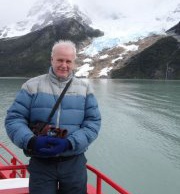
"The human spirit needs places where nature has not been rearranged by the hand of man" - Unknown
"The real voyage of discovery consists not in seeking new landscapes but in having new eyes" - Marcel Proust
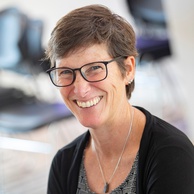
Dr. Kelly Waples is a Principal Research Scientist in Biodiversity and Conservation Science for the WA Department of Biodiversity, Conservation and Attractions. After completing her Ph.D. in Wildlife and Fisheries Sciences on dolphin behavioural ecology, Kelly has worked for more than 20 years in conservation and management. Her research interests include marine mammal conservation and ecology, human wildlife interaction, and knowledge exchange between science and management to improve conservation outcomes.
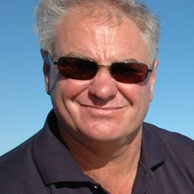
Assoc. Prof Tim Ward, science leader, has a range of interests including fish biology/ecology and stock assessment, especially of pelagic fishes, the ecological effects of fishing, especially by-catch and interactions with protected species. Other interests include conservation and sustainable use of benthic and pelagic ecosystems and research management and provision of policy advice to government.
Tim Ward is currently the Science Leader Fisheries Program within SARDI Aquatic Sciences. In this role, Assoc. Prof Ward leads and manages research on all of South Australia’s fisheries and is the principal scientist for the Sardine Fishery
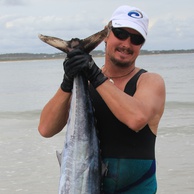
I am an independent fisheries biologist and an avid spearfisher, who has spent many years living and working in the tropics/sub-tropics of Australia and the Pacific. I have dived extensively throughout these regions especially on the Great Barrier Reef, and I currently reside in Cairns. Through ~30 years of fisheries work and >40 years of underwater fishing across Australia and overseas I have an intimate knowledge of many key fisheries species, and I still spend many hours in the water. I am lucky to be able to say that my work is my passion and I have a keen interest in the role Redmap can play in better understanding movement of marine species.
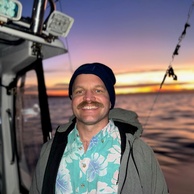
Barrett is a Research Fellow at the University of Tasmania's IMAS, and the Redmap national coordinator.